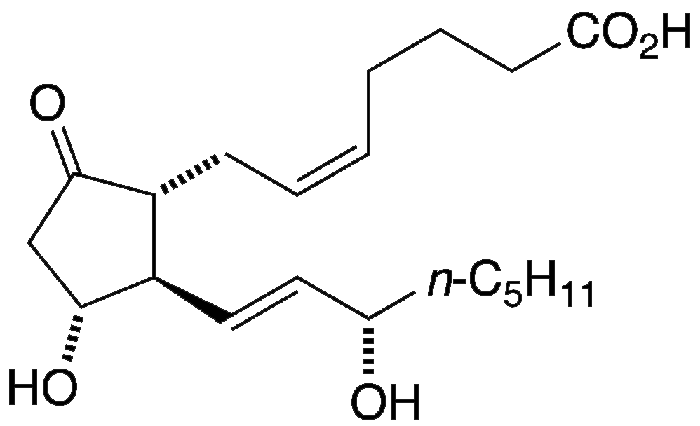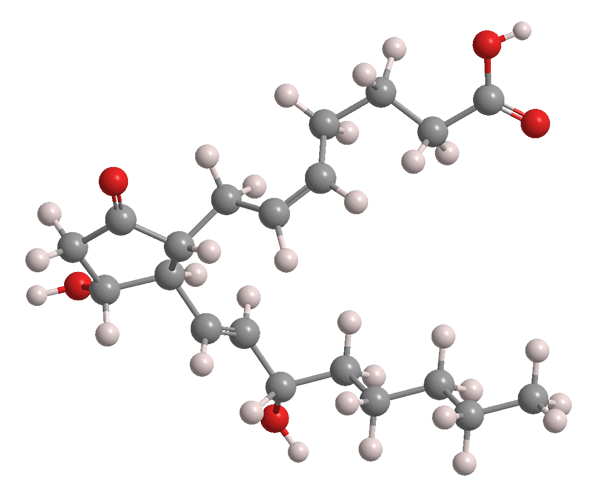What molecule am I?


Prostaglandins are hormone-like compounds that are produced in most animal tissues. They were discovered independently in seminal fluid in 1935 by Swedish physiologist and Nobel Prize winner Ulf von Euler and British physiologist M. W. Goldblatt.
In 1962, Swedish biochemist Sune Bergström, another Nobel laureate, and his co-workers identified prostaglandin E2 (PGE2) in the seminal vesicle tissue of sheep. According to the Merck Index, PGE2 “is the most common and most biologically active of mammalian prostaglandins.” In subsequent years, PGE2 was synthesized in the lab, first as a racemic mixture (1969–1970) and soon after as the naturally occurring (–)-isomer.
PGE2 has several medical uses, primarily during childbirth and in newborns. The US Food and Drug Administration approved its use in 1977; the uses include inducing labor, preventing postpartum bleeding, and keeping the ductus arteriosus closed in babies with congenital heart defects.
The body releases prostaglandins, including PGE2, as an inflammatory response to muscle injury. This sounds bad, but the inflammation activates muscle stem cells that repair the damage, according to biologist Helen Blau and her research team at Stanford University. They found that treating injured mice with PGE2 accelerated repair of the damage.
Conversely, using a nonsteroidal anti-inflammatory drug (NSAID) such as ibuprofen or aspirin inhibited muscle repair in mice. This cautionary tale says that sometimes it’s best to leave the NSAID on the shelf and let inflammation do its work.

Learn more about this molecule from CAS, the most authoritative and comprehensive source for chemical information.
Molecule of the Week needs your suggestions!
If your favorite molecule is not in our archive, please send us a message. The molecule can be notable for its current or historical importance or for any quirky reason. Thank you!
Stay Ahead of the Chemistry Curve
Learn how ACS can help you stay ahead in the world of chemistry.

